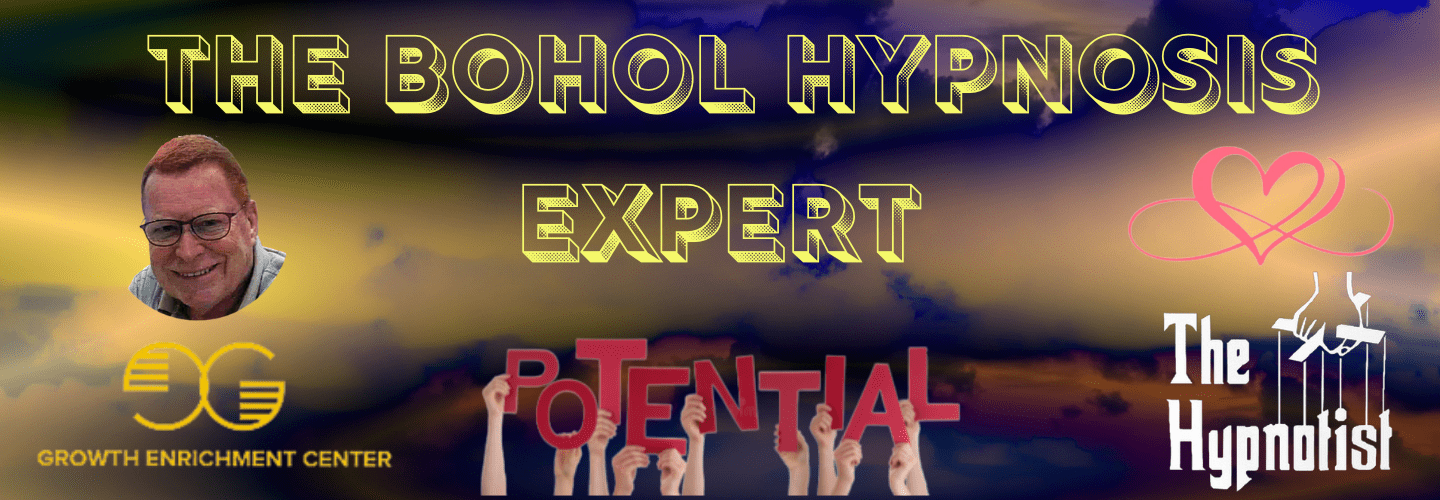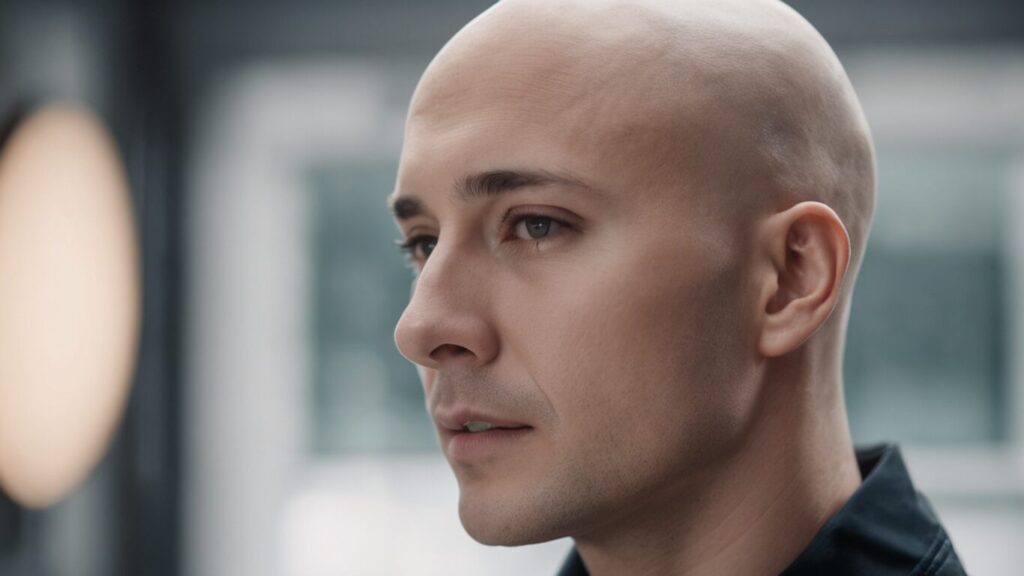
Alopecia Success Using Hypnosis
What is Alopecia Anyway?
Alopecia is a medical term used to describe hair loss or baldness. It can affect different areas of the body, but it is commonly associated with hair loss on the scalp.
There are different types of alopecia, including alopecia areata (patchy hair loss), alopecia totalis (total loss of hair on the scalp), and alopecia universalis (total loss of hair on the body). Alopecia can have various causes, including genetics, autoimmune disorders, stress, and certain medical treatments.
Alopecia can have a significant impact on an individual’s self-esteem and emotional well-being. Hair loss can be a visible sign of health issues, and coping with changes in one’s physical appearance can be challenging.
Many individuals with alopecia may experience feelings of embarrassment, self-consciousness, and even depression. Seeking support from healthcare professionals, support groups, and mental health counselors can be beneficial for those dealing with alopecia. Additionally, various treatment options are available to manage alopecia, including medications, topical treatments, and hair restoration procedures.
Alopecia can have a significant impact on an individual’s self-esteem and emotional well-being. Hair loss can be a visible sign of health issues, and coping with changes in one’s physical appearance can be challenging.
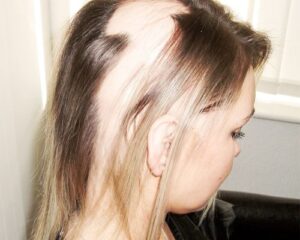
Many individuals with alopecia may experience feelings of embarrassment, self-consciousness, and even depression. Seeking support from healthcare professionals, support groups, and mental health counselors can be beneficial for those dealing with alopecia. Additionally, various treatment options are available to manage alopecia, including medications, topical treatments, and hair restoration procedures.
It is essential for individuals experiencing hair loss to consult with a healthcare provider to determine the underlying cause and explore appropriate treatment options.
Here is a list of common symptoms of alopecia:
- Hair loss, which can occur in small patches or across the entire scalp
- Hair that breaks easily or falls out in clumps
- Bald spots on the scalp
- Thinning of the hair
- Itching or irritation on the scalp
- Changes in the texture of the hair
- In some cases, changes in the color of the hair
It is important to note that the severity and specific symptoms of alopecia can vary from person to person. If you are experiencing any of these symptoms, it is recommended to consult a healthcare provider for a proper diagnosis and treatment.
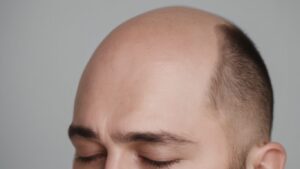
Typical Treatment Modalities used with Alopecia
- Topical treatments: Minoxidil (Rogaine) is a commonly used topical treatment for alopecia. It is applied directly to the scalp to promote hair growth.
- Oral medications: Finasteride (Propecia) is an oral medication that is used to treat male pattern baldness. It works by blocking the hormone dihydrotestosterone (DHT) which is thought to contribute to hair loss.
- Corticosteroid injections: For alopecia areata, corticosteroid injections can be used to reduce inflammation and stimulate hair growth in the affected areas.
- Light therapy: Low-level laser therapy (LLLT) is a treatment that uses red light therapy to stimulate hair follicles and promote hair growth.
- Platelet-rich plasma (PRP) therapy: PRP therapy involves drawing a small amount of the patient’s blood, processing it to concentrate the platelets, and then injecting it into the scalp to stimulate hair growth.
- Hair transplant surgery: In cases of severe or permanent hair loss, hair transplant surgery may be an option. This involves taking hair follicles from a donor site and transplanting them to the balding areas.
- Hypnotherapy using age regression to find the ISI, the Initial Sensitizing Incident. Once regressed to this first event, then the client must evaluate and understand what the root cause of their issue is. Many times it is at the infant stage where the initial understanding would be impossible, but the memory and pattern triggers were
It’s important to consult with a healthcare professional or dermatologist to determine the most appropriate treatment modality for your specific type of alopecia and your specific personality.
Case Studies
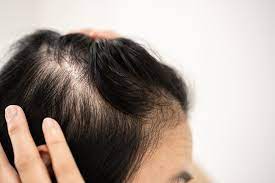 I have had success is reducing and resolving Alopecia and associated hair loss with the use of age regression in the somnambulistic state of hypnosis. By regressing the client back to the initial sensitizing incident or initial trigger point where stress, anger or fear imprinted a panic response withing the mind. Thus causing an abreaction which became a habit in the future life of the alopecia sufferer whenever that remembered or learned trigger is stimulated.
I have had success is reducing and resolving Alopecia and associated hair loss with the use of age regression in the somnambulistic state of hypnosis. By regressing the client back to the initial sensitizing incident or initial trigger point where stress, anger or fear imprinted a panic response withing the mind. Thus causing an abreaction which became a habit in the future life of the alopecia sufferer whenever that remembered or learned trigger is stimulated.
By regressing back to this initial point and then letting the client recognize what was the initial start of this condition and letting them recognize how they reacted to this ISI and showing them how to readjust their thinking and realign their reactions to the abreaction. We can reduce or eliminate the triggers that affect the hair loss event.
Issues that I have found to initiate these abreaction triggers are extreme performance pressure, stress associated with a daily activity and the fear of failure. These factors will also so themselves in other undesirable habits such as nail biting, skin biting, teeth grinding, and other illnesses such as Anorexia and Bulimia.
Extreme emotions of anger, hatred, and jealousy may also have an affect on the bodies response. All of theses issues should be addressed using regression and followed up with self-hypnosis to maintain the desired attitudes and responses to future external stimuli .
Let’s Get Some Results, Book an Appointment

Do not be afraid to reach out to me, Mark E Wilkins, to assist you in any issues you might have. Most Hypnotherapy sessions last 2 hours and EFT Sessions are usually handled with one session. Life Coaching is 45 minute session, once a week. Self-Hypnosis is taught in one session, and lasts a lifetime.
To make an appointment, first listen to the Pre-talk and fill out he Complementary Healthcare Provider Disclosure. The use the Contact Form to request an appointment with the Bohol Hypnosis Expert.
Self-help downloads are available. The self hypnosis program to teach you how to self-hypnotize is here.

